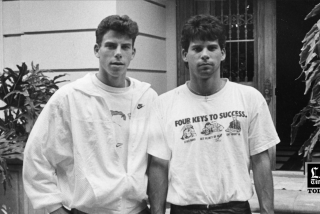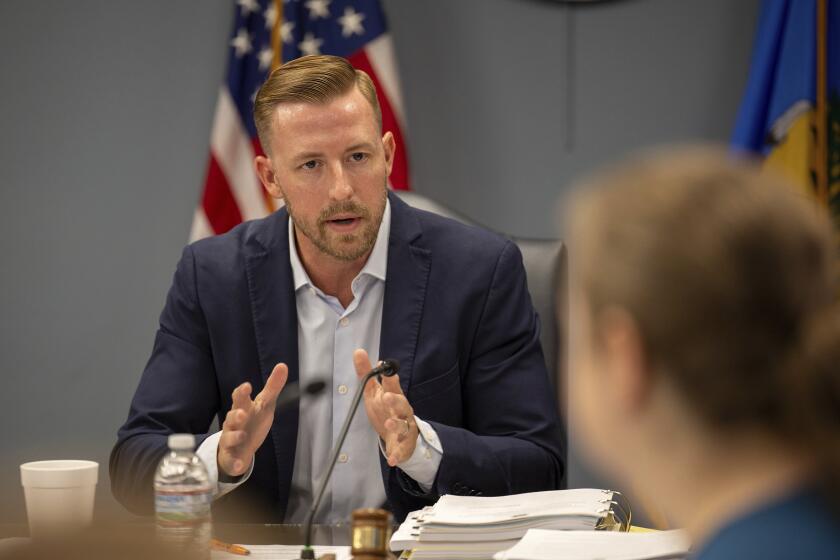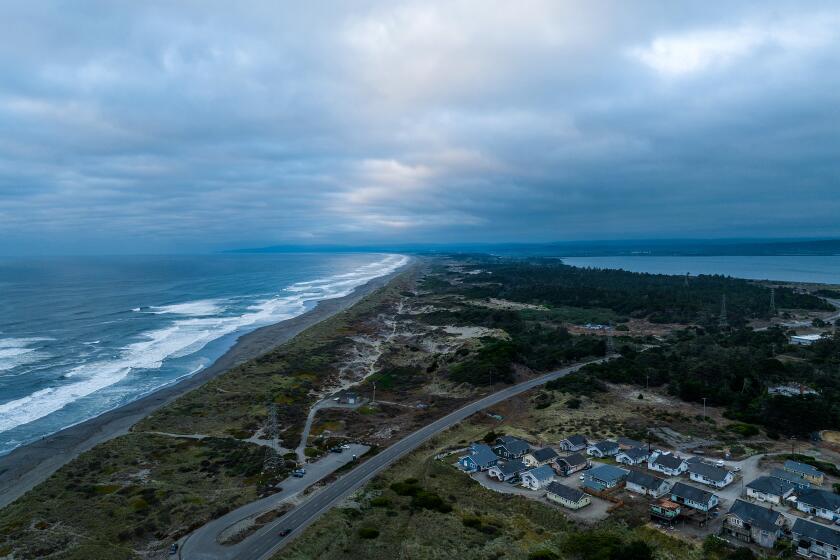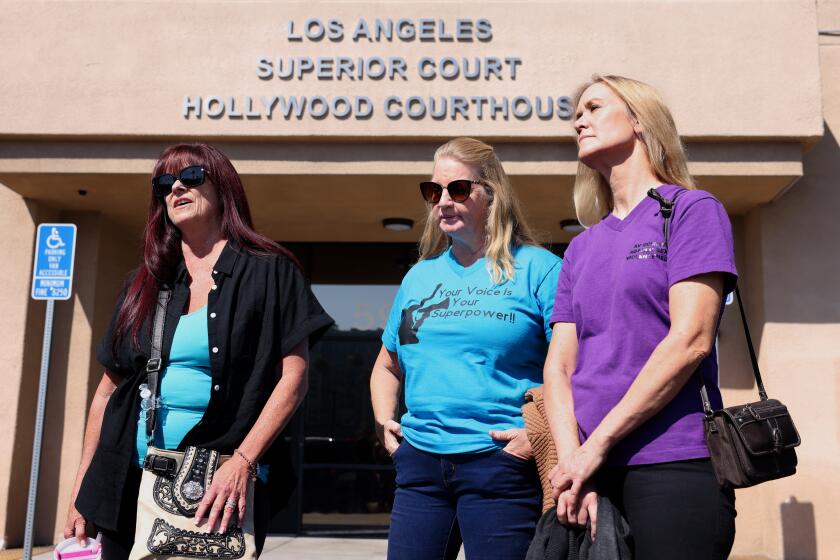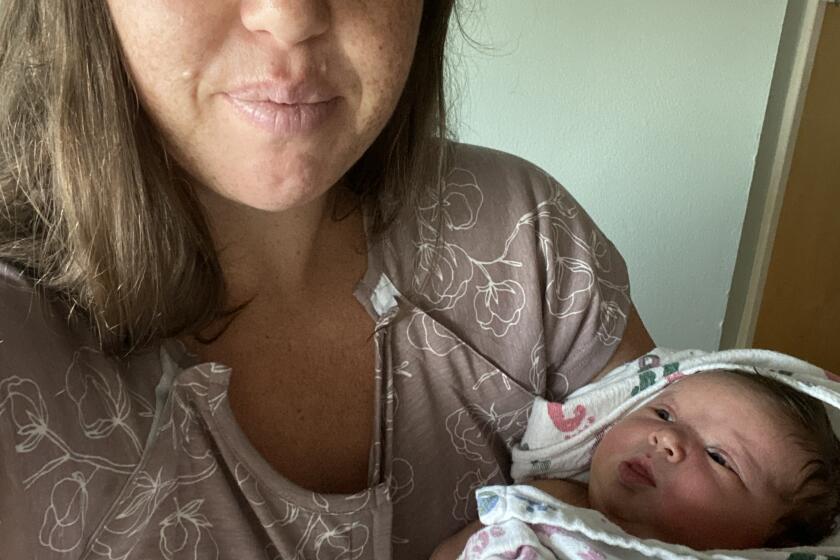Demonstrating Little Interest : Teach-in: One CSUN session on the Gulf War attracted about 100, but other speakers drew much smaller audiences.
A Cal State Northridge teach-in this week on the Persian Gulf War led to a consensus on at least one issue: Most students had other things to do with their time.
“We have a university here of 33,000 people and most students don’t care,” lamented Rudy Acuna, who as a new CSUN professor 20 years ago demonstrated against the Vietnam War.
About 100 students and faculty members gathered in the University Student Union to hear Acuna, who spoke Thursday on the second day of the two-day event. But other speakers for and against the war who participated in the teach-in attracted fewer people, some only about 15.
“I think the biggest problem out there is apathy and I applaud all of you for being here,” Joye Swan, a psychology major, told the crowd after Acuna’s talk.
A pro-war rally organized by a new campus organization called Operation Desert Support, on the first day of the teach-in Wednesday drew about 150 students, the largest number of any event during the teach-in.
“It’s important for us to show our troops that we support them,” said Jennifer Best, a political science student and a leader in the group.
“It upsets me to see people here protesting,” said Best, her voice breaking, after one student spoke up against the war and others held up signs reading “No Blood for Oil.”
Associated Students President Michelle Cooper urged support for the troops. “My brother is over there,” she said. “Before he left, he said to me, ‘I need you to be strong.’ So I support the war. I don’t believe you can separate the troops from the war.”
Hunt Braly, an aide to state Sen. Ed Davis (R-Santa Clarita), also spoke in favor of the war.
“The Vietnam War was unpopular,” he said. “But this time, it’s different. We know why we’re at war. We’re there to stop a tyrant.”
Acuna, a Chicano studies professor whose fiery rhetoric was reminiscent of the 1960s, tried with little success Thursday to inspire students to protest the Bush Administration’s Middle East policies.
Acuna, who branded himself a radical, said he lectures against the war in his classes. He said students and faculty members have “an obligation to go out and protest” against the war because it is immoral.
“Thousands of Iraqi children have been killed,” he said.
Acuna later said: “Today, we live in a society that doesn’t care about the homeless. Why should they care about Iraqi children dying? In the 1960s, people did care. This generation of youth doesn’t feel anything.”
The professor’s remarks drew an angry response from one female student. “I resent your generalizations about my generation because I do care,” she said. “We should support our troops once they’re over there.”
Acknowledging that he is of a different generation, Acuna likened U.S. society of today to that of Nazi Germany.
“You’re accepting anything your leader says,” he said.
As in “Mein Kampf,” Acuna said, a new world order “where everybody behaves” is forming in this country. He challenged one student to “use your head. Think. That’s what you’re in school for.”
Before Acuna’s noon talk, speakers from the nuclear freeze movement, the campus counseling center and others offered their views on the war. The audience, which politely applauded each speaker, varied throughout the day, but was the largest between 11 a.m. and 3 p.m.
Speaking after Acuna were Rabbi Jerrold Goldstein, the campus Hillel leader who offered the Jewish perspective on the gulf crisis; Nisar Hai of United Muslims of America; and several student leaders.
By 4 p.m., when the CSUN Coalition for Middle East Peace, an organization formed in November to oppose the war made its presentation, only 15 people remained.
“We’re pro-peace,” Denise Rene, the group’s president, said. “We do support our troops in that we want them brought home alive--not in body bags. We are totally against the war. We want a cease-fire immediately.”
“It bothers me that people are not questioning,” Paul Hanosh, a member of the pro-peace group, said.
Throughout the day, students and faculty members expressed disappointment that the teach-in attracted so few students.
“There’s a lot of apathy out there,” said Jeffrey Moss, chairman of the University Student Union who organized the teach-in. Moss planned the teach-in for the first week of classes because he believed students would have more time to attend.
He said perhaps there will be more interest “when the casualties begin adding up. Maybe we’ll have another teach-in in a few weeks.”
More to Read
Sign up for Essential California
The most important California stories and recommendations in your inbox every morning.
You may occasionally receive promotional content from the Los Angeles Times.


